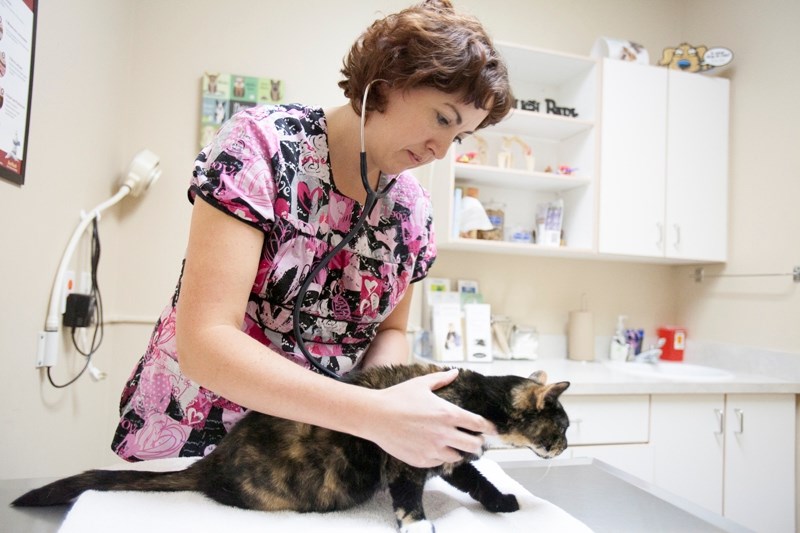THUNDER BAY – The Thunder Bay CEDC is seeking city approval for a half-million dollar investment it hopes will help Lakehead University make its proposed veterinary program a reality.
The Community Economic Development Commission says the program would benefit the local economy, as well as pet owners and farmers who are struggling to find adequate care in the midst of a serious vet shortage.
CEO Jamie Taylor sees economic rewards in bringing more students into the community, as well as a program designed to encourage as many as possible to stay in the region to practice.
The shortage of veterinary services is no secret in the community.
“We’re hearing definitely that people are having to travel to different communities for vet services for their household pets, we’re hearing that they’re having to travel to the United States,” Taylor said.
However, Taylor said the shortage is also now impacting the agricultural sector.
“We know there’s a shortage and that affects not only small animals, but also large animals, so that touches definitely on the agricultural sector as well.”
The CEDC’s board of directors has recommended funding the project, but the arms-length municipal agency needs approval from city council for project spending over $100,000.
Taylor will make the case to councillors on Monday for approving a $500,000 grant from CEDC operating and reserve funds to support the program.
Coun. Kristen Oliver welcomed the request and expects it to find widespread support.
“I don’t think this is going to be a contentious issue for city council,” she said. “We certainly recognize there’s a huge need – I mean, there are people in this community that just cannot find a vet.”
“It’s forcing them to travel to either Grand Marais or Dryden. It’s impacting the rescues, as we know, too – they’re having to ship animals out that they’re collecting from northern communities, because they just don’t have the capacity to have the vet services here.”
The program would give Northwestern Ontario residents the opportunity to stay close to home while pursuing a career in veterinary services, Oliver added.
“If we’re educating our students close to home, the likelihood they’re going to stay in this community is greater,” she said. “That’s why I’m 100 per cent in support of this.”
Lakehead has proposed a Doctor of Veterinary Medicine program in partnership with the University of Guelph, currently home to Ontario’s only professional veterinary program.
A proposed 20 students a year would complete their first two years of study in Thunder Bay, moving to Guelph for the final two years.
University president Moira McPherson told city council last year Lakehead was targeting fall 2024 to launch the program, but had not yet secured provincial approvals.
Lakehead University declined a request for comment for this story through a spokesperson.
The CEDC funds would go towards a capital build that Taylor said is likely to exceed $10 million. She’s hopeful the agency’s contribution could help leverage provincial and federal funding the university has applied for.
According to a CEDC document, the program’s placements would take place exclusively in Northern Ontario communities, including Indigenous communities.
The CEDC suggested the program could make a meaningful difference in veterinarian capacity on a provincial scale, “almost [doubling] the number of new Ontario veterinarians from 30 to 50” per year.
The Northwestern Ontario Municipal Association (NOMA) has also expressed support for Lakehead’s proposal.
With files from Kurt Black, TBT News
